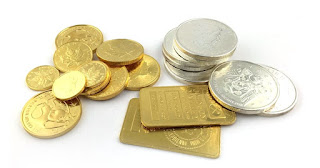Investing in precious metals, such as gold and silver, can be a smart financial move in uncertain economic times. In Canada, buying and selling gold and silver is a straightforward process, with several options available, including direct purchases from major banks, online dealers, and local dealers. Here's everything you need to know about investing in gold and silver in Canada.
Can you purchase gold from banks in Canada?
Yes, in Canada, you can purchase gold directly from any of the big five banks - Scotiabank, RBC, TD, CIBC, and BMO. You can purchase gold in person at a branch, online, or through online banking and your actual bank account. Banks typically sell gold in the form of bullion bars and coins, with a variety of weights and purity levels to choose from.
Do you pay tax on gold in Canada?
No, there is no tax on the purchase or sale of gold in Canada. However, if you sell gold for a profit, the profit is considered a capital gain and is subject to tax. Capital gains are taxed at 50% of your marginal tax rate.
Does the government have the right to seize your gold?
In Canada, the government does not have the right to seize your gold, except in rare circumstances. For example, if your gold is seized as part of a criminal investigation, it may be forfeited to the government. In other cases, if you owe back taxes, the government may seize your assets, including gold, to collect the debt.
How much gold can an individual sell without reporting?
There is no specific amount of gold that an individual can sell without reporting it to the government. However, if you sell gold for a profit and the profit is considered a capital gain, you must report it on your tax return. Capital gains are taxed at 50% of your marginal tax rate.
How to sell your gold for cash?
You can sell your gold for cash in several ways in Canada. You can sell to a local dealer, an online dealer, or a pawnshop. You can also sell your gold to a refinery or a smelter. When selling your gold, be sure to check the spot price of gold, as this will give you an idea of the current market value of your gold. You can also get a professional appraisal to determine the value of your gold.
How much can an individual have before they have to declare it?
In Canada, there is no specific amount of gold that an individual must declare to the government. However, if you sell gold for a profit and the profit is considered a capital gain, you must report it on your tax return. Capital gains are taxed at 50% of your marginal tax rate.
Investing in gold and silver in Canada is a straightforward process, with several options available, including direct purchases from major banks and online dealers. Tax laws and reporting requirements for capital gains are similar to other investments. When buying or selling gold, be sure to check the current market value and consider getting a professional appraisal to determine the value of your investment.
More Articles Below









